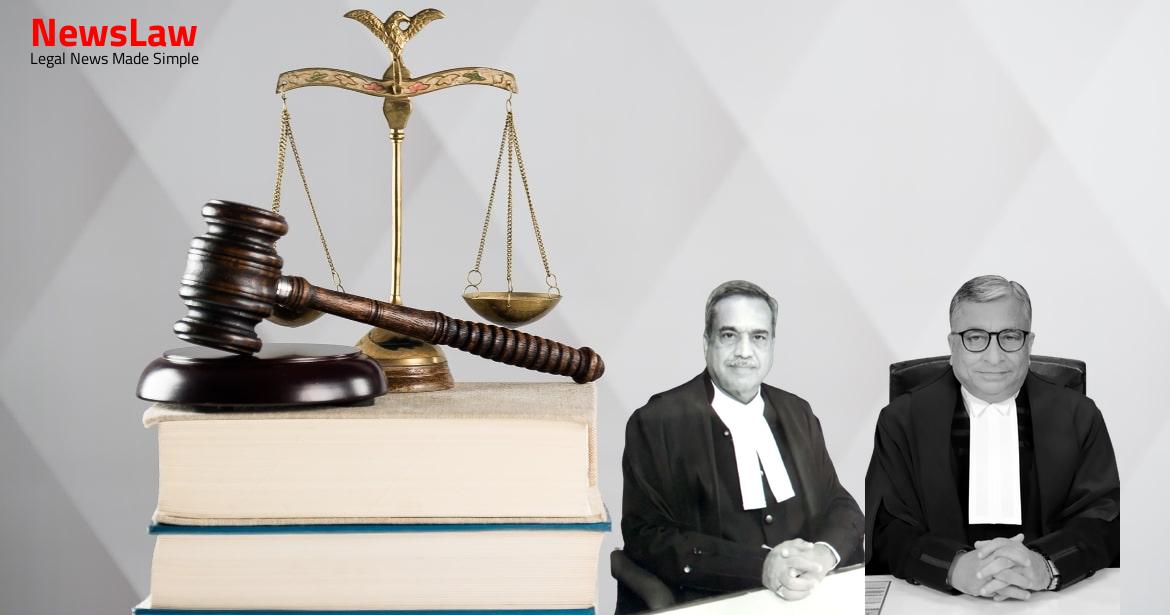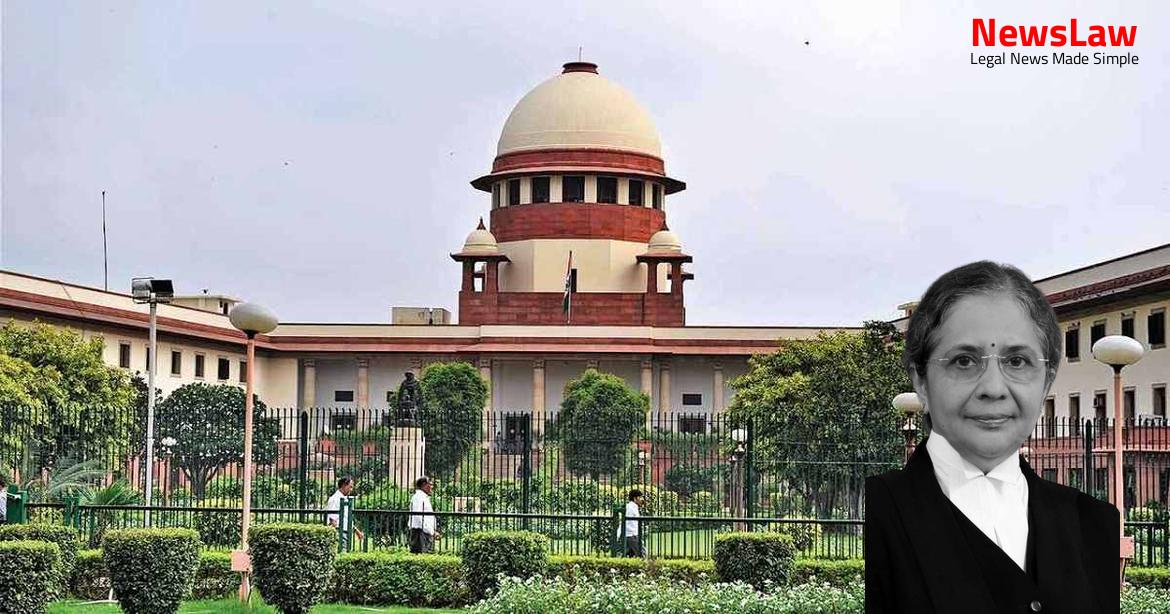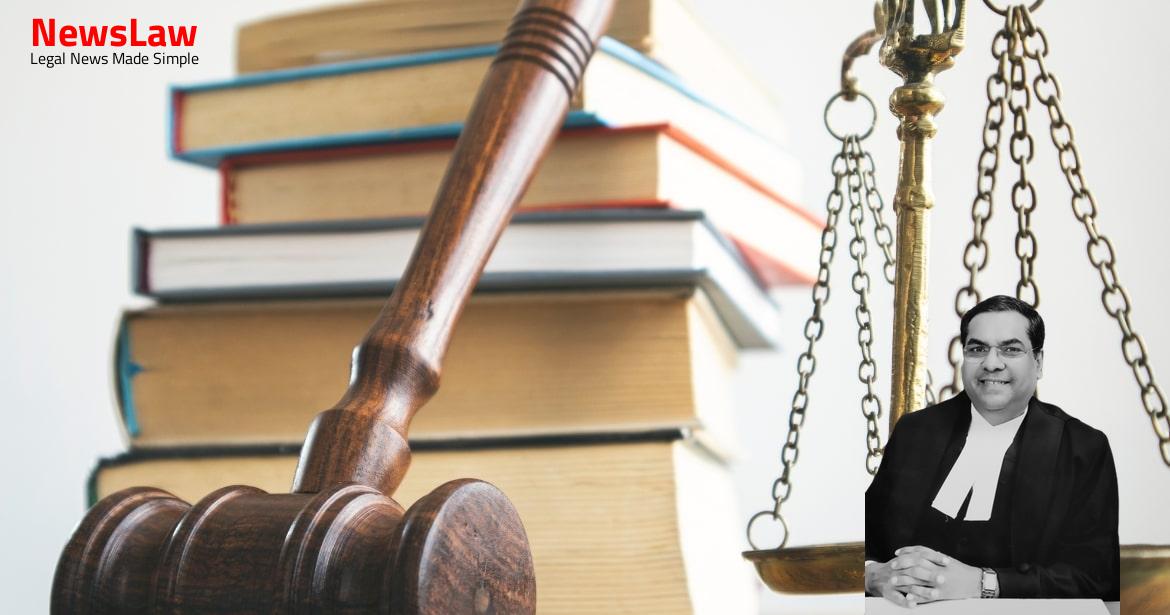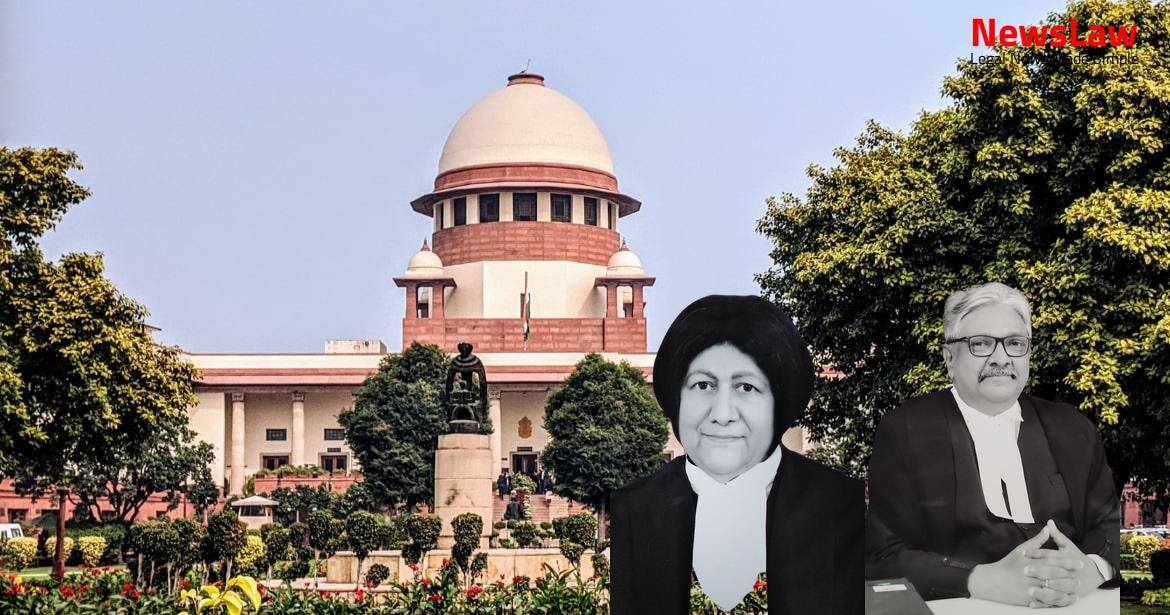Explore the nuanced legal analysis by the court regarding compassionate appointments for heirs of employees upon retirement. This case summary delves into the complexities surrounding the claim for employment on compassionate grounds, shedding light on the legal framework and constitutional provisions at play.
Facts
- High Court dismissed two writ petitions and confirmed Industrial Court’s judgment and award
- Compensation of Rs. 5 lakhs for candidates above 45 years of age
- Industrial Court directed compassionate appointment for legal heirs of deceased employees of Class-IV category only
- Industrial disputes raised in 2005 for employment of legal heirs of retired employees
- Industrial Court directed Ahmednagar Mahanagar Palika to provide employment as per award passed in 1981
- Compensation amount to be paid by 31.05.2022
- Issuance of appointment orders to eligible candidates by 30.04.2022
- Demand No 3 was related to providing employment to the heirs of employees.
- The dispute regarding this demand was referred for adjudication as Reference (IT) No 2 of 1993.
- The Industrial Court directed that heirs of employees in Class-IV category should be given appointment on retirement, death, or becoming invalid.
- Ahmednagar Municipal Council was converted to Ahmednagar Mahanagar Palika in 2003.
- Further demands were raised leading to modifications in the judgment and award of 30.03.1981 in Reference IT No 51 of 1979.
- References were made to the Industrial Court for adjudication.
- Demand No 4 was about employing heirs of employees in Class-IV category, agreed upon by the Municipal Council.
- It was agreed that heirs would be given appointment in place of employees who die before retirement, become invalid, or retire.
Also Read: Challenging Legal Presumptions in Negotiable Instrument Cases
Arguments
- Appointment on compassionate grounds is not automatic, but subject to strict scrutiny of various parameters including the financial position of the family and economic dependence on the deceased employee.
- Direction to give appointment to heirs of employees on their retirement/superannuation may be against the object of providing appointment on compassionate grounds and hit by Article 14 of the Constitution of India.
- The Industrial Court and High Court erred in directing the Mahanagar Palika to give appointment to heirs of employees on their retirement/superannuation.
- The Industrial Court and High Court passed orders relying on a judgment and award from 1981 when the Municipal Council was in existence, which may not be applicable to the current Municipal Corporation.
- The appointment on compassionate ground should be as per the modified scheme, as observed in recent judgments.
- The respondent’s counsel argues that the Industrial Court and the High Court did not err in directing appointments to be given to the heirs of employees on retirement, based on a previous judgment and award.
- As per the judgment in Reference IT No 51 of 1979, the heirs of employees have a right to appointment upon retirement.
- The respondent emphasizes that the Bipartite Agreement and the 1981 judgment are binding, and the heirs are entitled to appointments on compassionate grounds upon retirement.
- Citing the case of Subhadra v. Ministry of Coal, the respondent asserts that compassionate appointment decisions do not apply in this specific case.
- Mr. Patil, representing party no. 1, argues against providing employment to legal heirs upon retirement, especially if they are minors at the time of superannuation.
- He contests that the appointment of heirs upon retirement is not a compassionate appointment but rather a ‘varas hakka’.
Also Read: Legal Analysis of Admission Irregularities in Educational Institutions
Analysis
- The demand for providing employment to the legal heirs of employees on their retirement/superannuation has been deemed unreasonable and misused.
- Appointment on compassionate grounds is subject to strict scrutiny based on various parameters including the financial situation of the family.
- The judgment and award passed in 1981 regarding appointment of heirs of employees on retirement/superannuation may no longer be valid due to changes after the Municipal Council was converted to Municipal Corporation.
- The demand for employment of legal heirs is claimed as a right, limiting the scope for qualified unemployed individuals to secure jobs.
- Compassionate appointments are meant to be exceptions to normal recruitment methods and should be treated as such.
- Claiming employment for distant relatives based on adoption may not be justifiable under the compassionate grounds scheme.
- The State Government’s scheme for employment in the establishment is to be followed at par with government employees, limiting opportunities for candidates from reserved categories.
- Vested rights for appointment on compassionate grounds cannot be claimed, and it’s difficult for candidates from reserved categories to secure employment due to lack of opportunities.
- The concept of ‘varas hakka’ is not supported by any scheme.
- It may be violative of Article 14 and Article 15 of the Constitution of India.
- The Industrial Court and High Court directing the Municipal Corporation to appoint heirs of employees upon retirement is unsustainable.
- The judgment and award passed by the Industrial Court and High Court should be quashed and set aside.
Also Read: Quashing of Enhanced Tuition Fee in Private Medical Colleges
Decision
- The appeals succeed and the impugned judgment and orders are quashed and set aside.
- The judgments and awards directing the municipal corporation to appoint the heirs of employees on retirement/superannuation are nullified.
- The appeals are allowed without any order as to costs.
Case Title: AHMEDNAGAR MAHANAGAR PALIKA Vs. AHMEDNAGAR MAHANAGAR PALIKA KAMGAR UNION (2022 INSC 914)
Case Number: C.A. No.-005944-005944 / 2022



